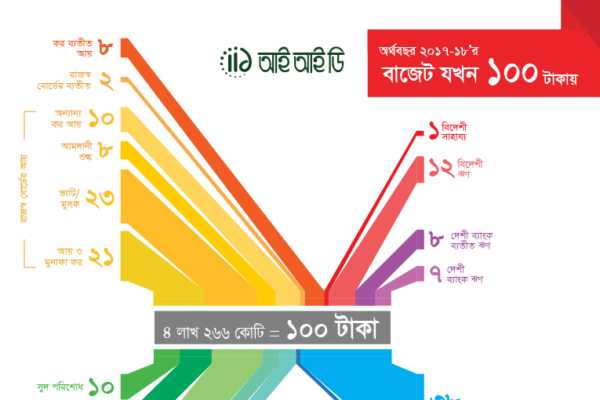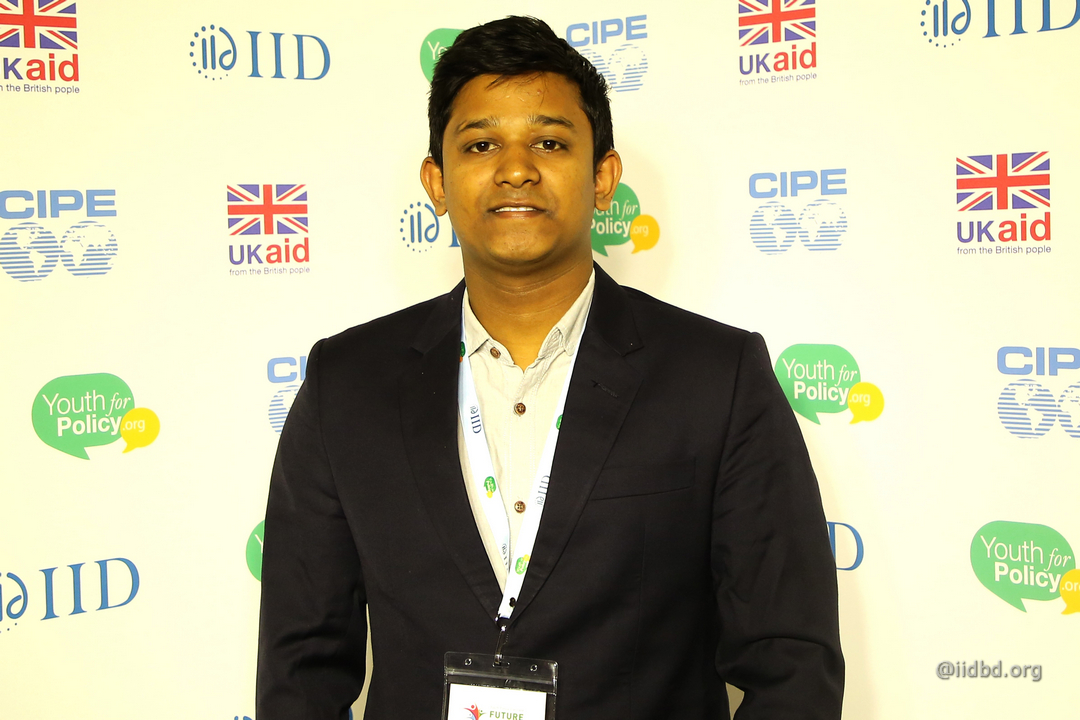What is Internaut Day? The term “Internaut” is a combination of the words internet and astronaut, and refers to an expert user of the internet. Today, August 23rd is Internaut Day – a celebration of the public launch of the World Wide Web in 1991 by CERN lab in Switzerland. Thank you, CERN!
To commemorate Internaut Day, let’s take a look at a few ways that the amazing World Wide Web is essential to further IID’s vision of informing people-
Hello MP
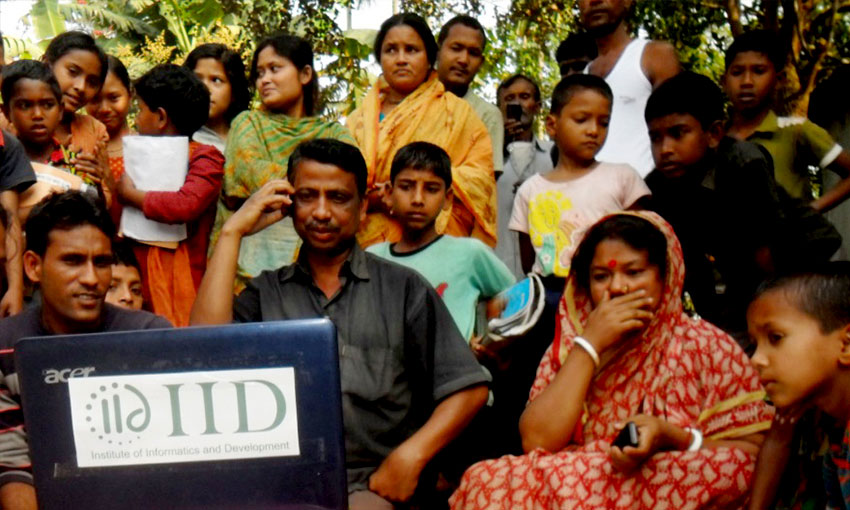
It connects villagers in rural Bangladesh with their Member of Parliament located in Dhaka. Hello MP uses the internet to arrange a virtual conference between the two. It is a truly delightful affair to see the villagers discuss administrative issues in their area and their MP jump at the opportunity to solve those problems. That’s democracy in action!
e-FGD
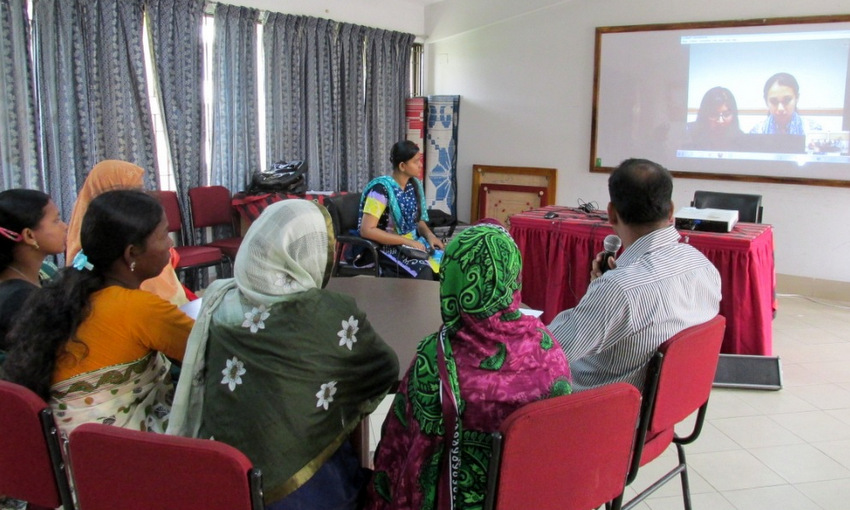
We conduct online Focus Group Discussion, or e-FGD, in different areas of the nation. It’s a better approach when one needs to ensure that the participants do not feel intimidated by the physical presence of the researcher, or, to conduct a large number of FGDs in different parts of the country within a short period of time. For instance, see IID’s education campaign with BRAC, and Youth Manifesto before the National Elections.
Online seminar

Unlike the traditional seminar, here participants can attend from anywhere as long as they are online and discussions are more coherent and articulate because participants are writing, not speaking. The discussion also remains recorded, as you can see in this example, where the Honorable Information Minister also took part in this virtual seminar on right to information.
e-Townhall
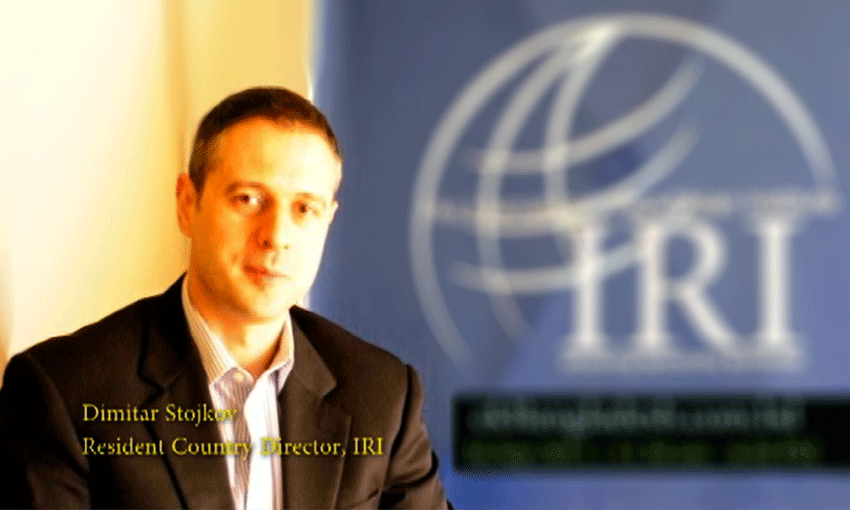
This is a Q & A session held online with a prominent personality, expert, or politician. For instance, see this e-townhall meeting where the Resident Country Director of International Republican Institute (IRI) answered various questions on their public survey.
Social media seminar
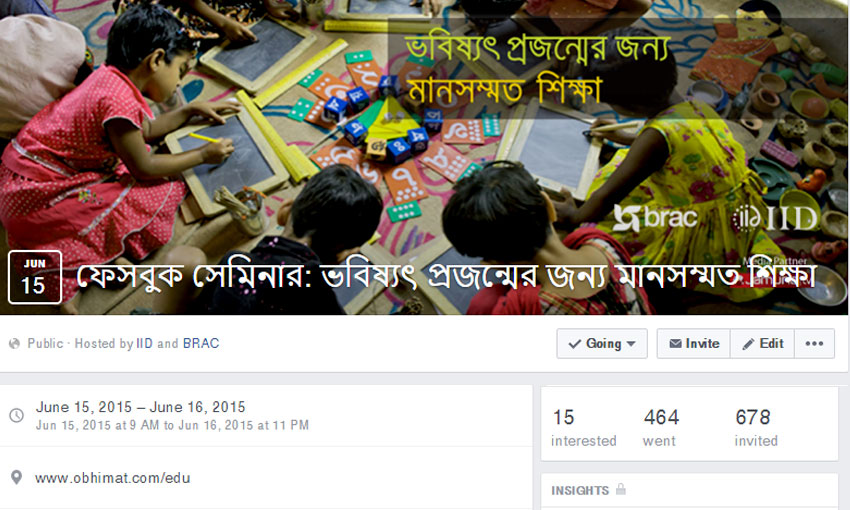
We invite participants to engage in a seminar on facebook, and share their comments with policy experts. For our education campaign with BRAC, we created a page on Facebook and asked for people to share their views on the education system in Bangladesh. Then we shared those with the Education Minister Mr. Nurul Islam Nahid and several other high level officials and experts at the actual seminar.
Paperless, tab-based survey
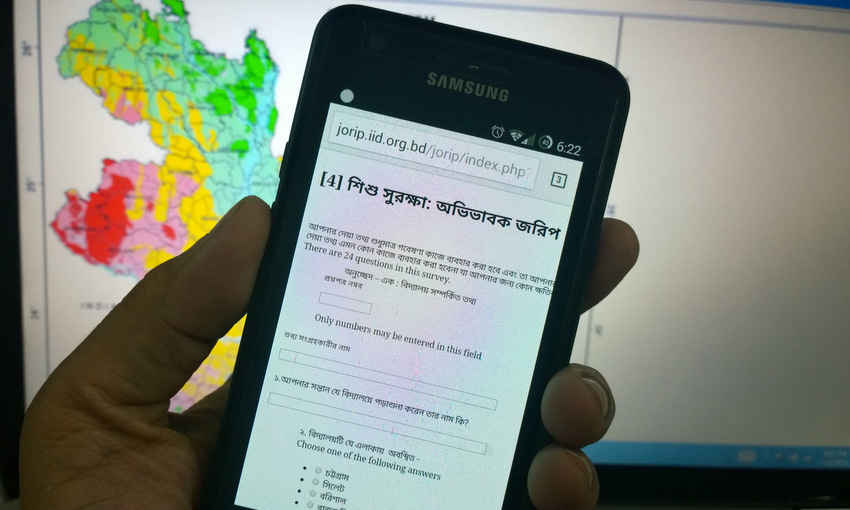
The use of tablets with internet connection has made our household survey significantly more efficient. We can monitor enumerators in real time, they can send the data instantly and we can also analyze them from a central dashboard. We also collect gps location and this geospatial data is used for data mapping and visualization.
Online survey
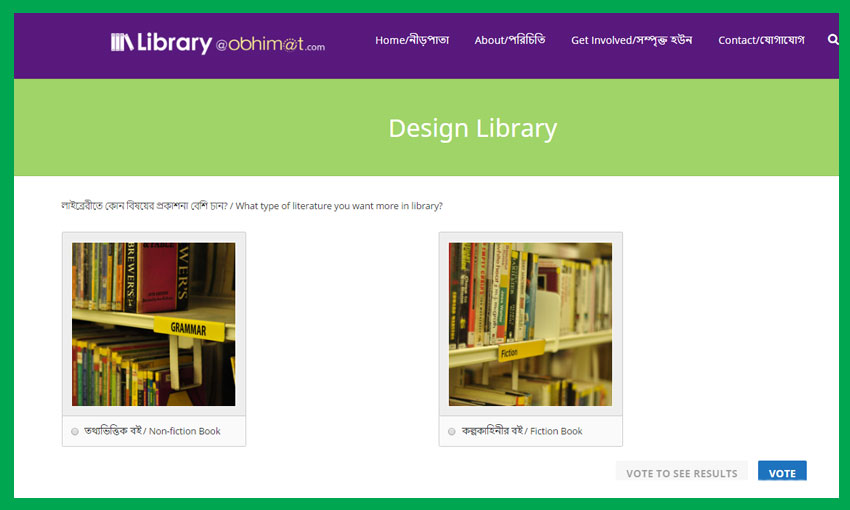
IID’s online portal, Obhimat.com, can easily connect with thousands of users and get to know more about them and their opinions. Obhimat simultaneously serves as a medium for disseminating our research findings to everyday users.
Last year we used Obhimat.com to run a youth survey to gather suggestions for a Youth Manifesto outlining 6 priority areas for Dhaka’s soon to be new Mayor. Then we ran another online survey for our Library and Information Services study to collect data on what people want in a library.
And none of this would have been possible without the Internet and all its glory!


